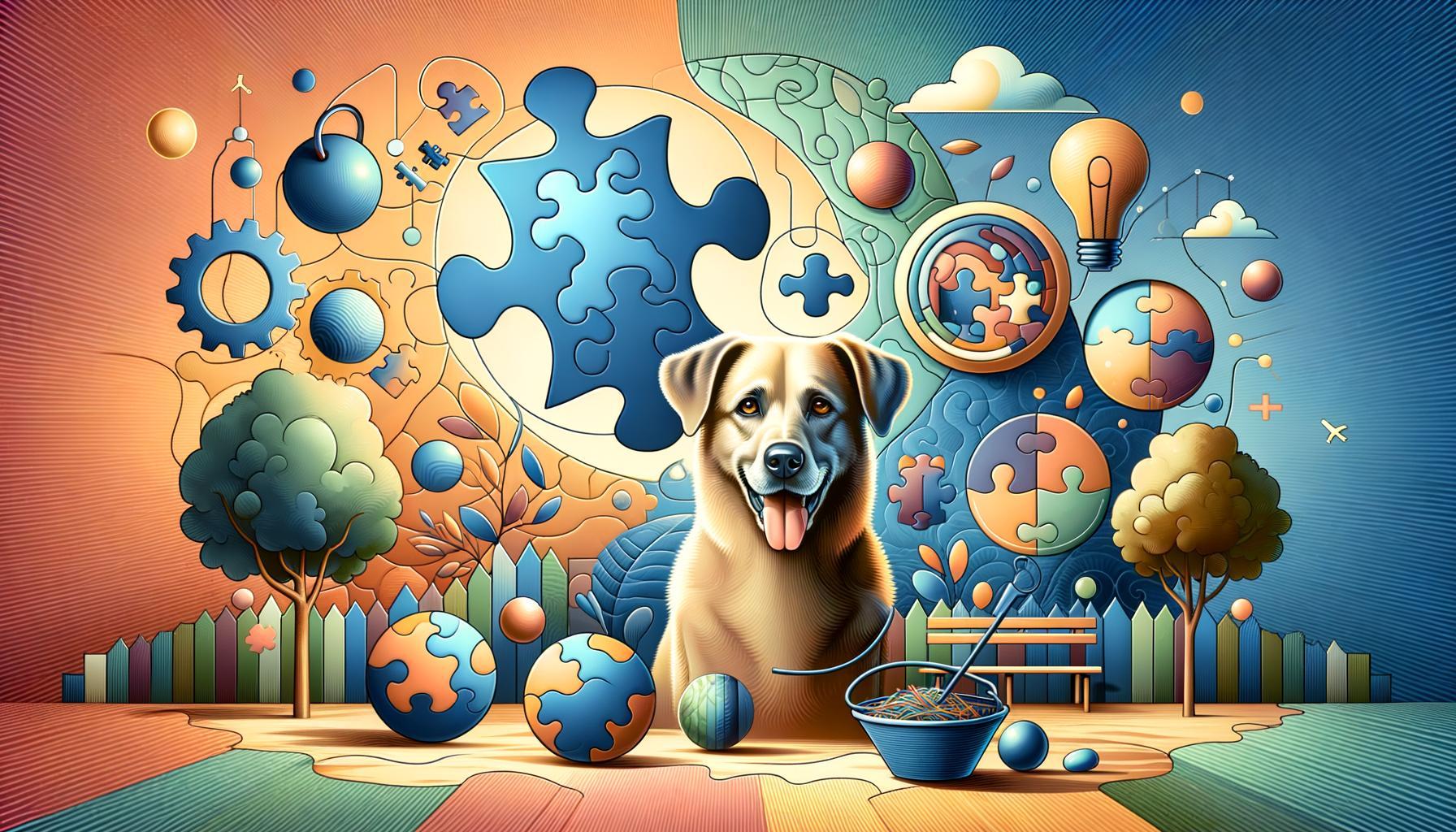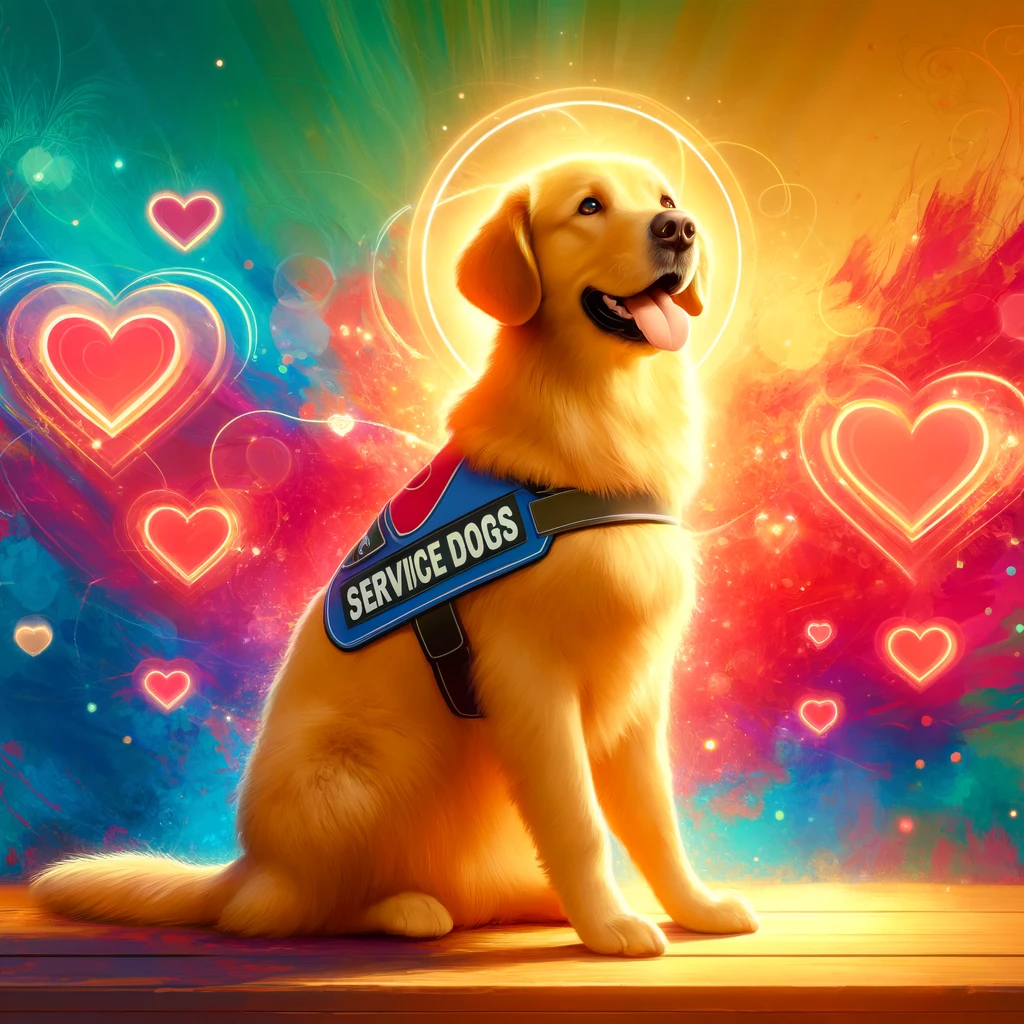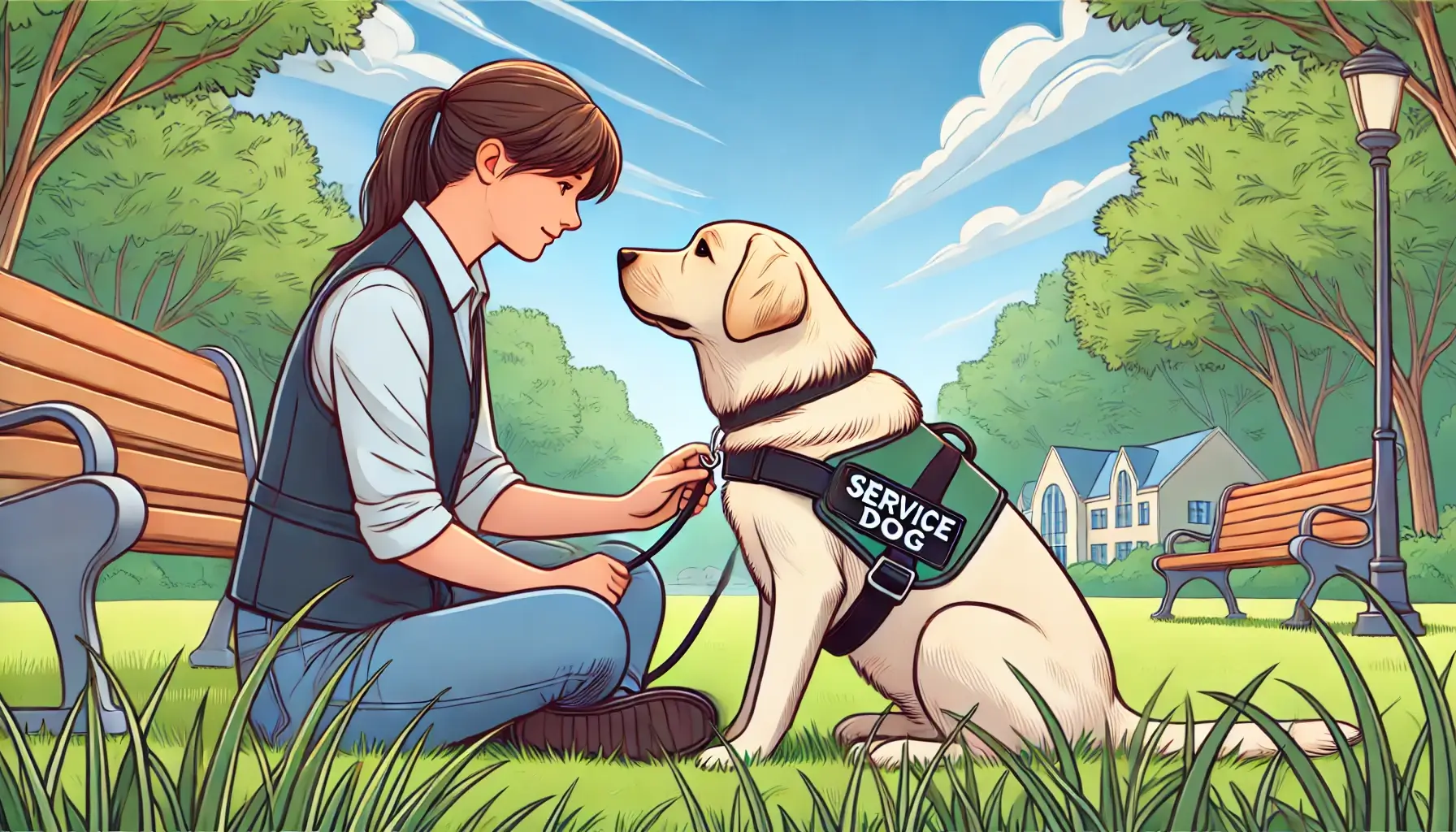In a world often outlined by routines and rhythms, there exists an unspoken melody where human hearts and canine paws beat in perfect harmony. Imagine a vibrant scene where gentle eyes meet, sparking a connection deeper than words—a bond forged in the quiet understanding and boundless love of an autism support dog. These extraordinary canines, with their unyielding loyalty and empathetic nature, are more than pets; they are lifelines, guiding individuals with autism through the intricate dance of daily life. “Canine Companions: Autism Support Dogs Transform Lives” delves into the profound impact these four-legged champions have, unveiling stories of transformation and the unique synergy between humans and their devoted canine companions. Step into this world and witness how the silent strength of a wagging tail and the comforting presence of a steadfast friend bring light and hope to those navigating the spectrum.
Table of Contents
- Bonding Beyond Words: Building Lifelong Connections
- Training for Triumph: Preparing Autism Support Dogs
- Paws for Comfort: Emotional Support and Stability
- Navigating Public Spaces: Enhancing Independence
- Choosing the Right Canine Companion: Expert Tips
- Understanding the Cost: Financial Aspects of Support Dogs
- Wrapping Up
Bonding Beyond Words: Building Lifelong Connections
Dogs have an uncanny ability to connect deeply with humans, transcending the boundaries of language. For individuals with autism, this connection can be groundbreaking, providing a myriad of emotional and practical benefits. These specially trained dogs offer unwavering companionship, sensory regulation, and essential behavioral support. They’re more than pets; they become partners in navigating the complexities of the world, offering a silent form of communication that bridges the gap where words may fail.
Canine companions for individuals with autism can:
- Reduce anxiety
- Offer physical and emotional grounding
- Improve social interactions
- Provide a calming influence during meltdowns
| Benefit | Impact |
|---|---|
| Reduction of Stress | Decreases cortisol levels |
| Enhanced Communication | Facilitates easier interactions |
| Emotional Support | Provides a consistent source of comfort |
| Increased Independence | Assists with daily routines |
Training for Triumph: Preparing Autism Support Dogs
The journey of shaping autism support dogs into reliable companions begins with early socialization and training. Puppy raisers work tirelessly to expose these furry candidates to various environments, sounds, and experiences. Imagine a puppy learning how to navigate through a busy supermarket, staying calm amidst bustling aisles and curious spectators. This early phase is crucial, ensuring that the dogs gain confidence and adaptability, fundamental traits for the demands of their future roles.
As training advances, these intelligent canines master specific skills tailored to support individuals with autism. Trainers focus on commands and behaviors that significantly enhance the quality of life for those they assist. Here are some key training focus areas:
- Interrupting repetitive behaviors – Dogs learn to gently intervene when repetitive actions occur, providing a comforting distraction.
- Promoting social interactions – These trained dogs encourage positive social interaction by acting as a bridge between their handler and others.
- Monitoring safety – Skills include alerting to dangerous behaviors like bolting and providing a grounding presence during overwhelming situations.
| Training Aspect | Description |
|---|---|
| General Obedience | Foundation skills such as sit, stay, and recall. |
| Behavioral Interruption | Intervening in repetitive or harmful behaviors. |
| Social Facilitation | Encouraging positive social engagement. |
Paws for Comfort: Emotional Support and Stability
From aiding daily routines to providing unwavering companionship, autism support dogs are more than pets; they are essential lifelines. With their natural aptitude for sensing and responding to their owner’s needs, these loyal canines help foster a sense of safety and predictability. Their presence can reduce anxiety and enhance social interactions. When a child with autism is overwhelmed, these dogs can offer a tactile distraction through cuddles, or gently guide them away from distressing situations. This emotional stability can lead to improved sleep patterns, reduced meltdowns, and a calmer home environment.
Autism support dogs are specially trained to perform specific tasks that cater to the individual needs of their owners. Here are some of the key benefits they provide:
- Safety: They are trained to prevent self-harming behaviors and guide their owners away from danger.
- Independence: They assist with daily tasks, aiding in greater autonomy for both children and adults with autism.
- Social bridge: Facilitating interactions with peers and improving communication skills.
- Routine establishment: Helping to set and maintain a daily schedule, providing much-needed consistency.
Below is a comparison of typical behaviors before and after acquiring an autism support dog:
| Behavior | Before Support Dog | After Support Dog |
|---|---|---|
| Anxiety Levels | High | Moderate to Low |
| Social Interaction | Sparse | Frequent |
| Sleep Patterns | Erratic | Consistent |
Navigating Public Spaces: Enhancing Independence
Using autism support dogs in public spaces provides a significant shift in how individuals with autism experience their environment. These incredible dogs help bridge the sometimes overwhelming gap between isolation and independence. Picture a busy shopping mall: to someone with autism, it can feel like a sensory minefield. However, with a trained companion by their side, navigating through the crowd, dealing with unexpected noises, and avoiding overstimulation becomes manageable. The dog provides a calming presence, and its specially trained behaviours can interrupt anxiety before it spirals out of control, fundamentally altering the experience of these public spaces.
Support dogs are trained to perform a variety of tasks that specifically aid in public navigation. Key skills include:
- Assisting with balance and proprioception.
- Providing deep pressure therapy during anxiety attacks.
- Alerting others to the handler’s distress.
- Guiding the handler away from stressful or dangerous situations.
| Task | Benefit |
|---|---|
| Deep Pressure Therapy | Reduces anxiety and sensory overload |
| Guidance | Enhances safety and navigational awareness |
| Alert to Distress | Ensures timely intervention and support |
These abilities enable individuals to confidently access various public places, from parks to public transit systems, thereby fostering a sense of self-assurance and independence.
Choosing the Right Canine Companion: Expert Tips
When selecting a canine companion for autism support, it’s crucial to consider various factors to ensure the match is beneficial for both the individual and the dog. Firstly, the breed and temperament play significant roles. Some breeds like Labradors, Golden Retrievers, and Poodles are known for their gentle and friendly nature, which can be soothing for individuals with autism. Additionally, focusing on a dog’s inherent personality traits is essential since patience, calmness, and sensitivity are key characteristics in support dogs. Going beyond just the breed, it’s recommended to engage with professional trainers or support dog organizations that can help assess and recommend the best fit for personal requirements.
Another aspect to contemplate is the lifestyle and environment in which the dog will be living. Understanding the specific needs and daily routines of the person with autism can guide the choice of a support dog. Consider these elements:
- Living Space: Does the living space provide enough room for a medium to large-sized dog?
- Activity Level: Does the individual prefer a more active life, requiring a dog that enjoys outdoor activities?
- Allergies: Are there any allergies to dog fur that might limit breed choice?
It can be helpful to use a structured approach to evaluate these factors by creating a comparison table:
| Factor | Considerations |
|---|---|
| Living Space | Room for larger dog or need for compact breeds |
| Activity Level | High-energy dog vs. low-energy companion |
| Allergies | Hypoallergenic breed necessity |
This structured approach can significantly aid in narrowing down the suitable options efficiently, paving the way for a transformational and supportive match.
Understanding the Cost: Financial Aspects of Support Dogs
The financial commitment associated with welcoming a support dog into your life can be substantial. This investment isn’t just in the initial acquisition but spans training, healthcare, and ongoing maintenance. Training costs can vary significantly, particularly for specialized autism support dogs, where training programs include specific behavioral modifications and commands tailored to assist children with autism. On average, training costs range between $10,000 to $25,000, encapsulating the deep expertise and time required to ensure the dog’s readiness. Moreover, the administrative and certification fees for obtaining an officially recognized support dog should also be considered.
Monthly expenses include food, routine veterinary visits, grooming, and miscellaneous costs such as toys and equipment. To offer a clearer perspective, consider the following ongoing monthly costs:
- Food: $50 – $100
- Medical Care: $30 – $70
- Grooming: $15 – $60
- Miscellaneous Supplies: $20 - $40
Such costs underscore the importance of financial planning when considering a support dog. Here’s a snapshot of typical initial and annual expenses:
| Category | Initial Cost | Annual Cost |
|---|---|---|
| Training | $10,000 – $25,000 | – |
| Food | $50 – $100 (First Month) | $600 – $1,200 |
| Vet Visits | $100 – $200 | $360 – $840 |
| Grooming | $50 – $100 | $180 - $720 |
Wrapping Up
As the sun sets on the horizon of our exploration into the world of canine companions for individuals with autism, one thing becomes luminously clear: these four-legged heroes are much more than mere pets. They are bridges to the world, gentle guides through the maze of social interactions, and steadfast anchors in the turbulent seas of sensory overload. Their paws leave imprints not just on the ground but on the hearts and futures of those they assist. In their quiet, unwavering presence, we find a testament to the transformative power of unconditional love and support. As our journey together draws to a close, let us not just recognize the profound impact these dogs make, but also celebrate the beautiful, silent symphony of partnership they create with their human companions. Because every wag of the tail tells a story, and every bark echoes a promise—of a life enriched, a challenge met, and a friendship that knows no bounds.






Leave a Reply